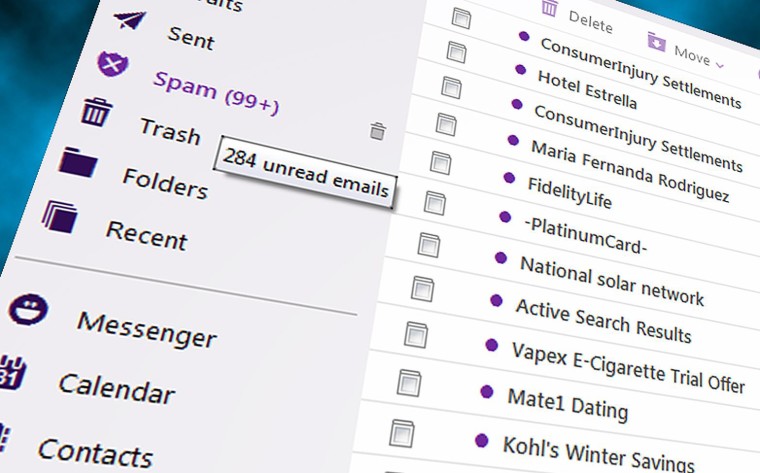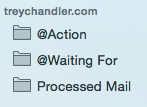Is your Inbox overrun with unread messages? Are you using your Inbox as your to-do list? Are messages falling past the bottom of the screen, only to be lost forever? Do not fear, I’m here to help.

I am a neat freak. I have been ridiculed throughout my life for having a place for everything, and putting everything in it’s place. But more than once in my working life, my email Inbox has been a tragic mess by any standard. I see it every week in one clients office or another. Here are some ways to get on top of the problem, and make “Inbox Zero” a reality.
Declare Email “Bankruptcy”
This is exactly what you think. Pick a start date, highlight EVERYTHING before that date, and hit the delete button. This is clearly not the best way to organize your information, but chances are you are not going to go back and read or use those 2 year old emails anyway.
Create 3 simple Inbox folders
This is the system I use, and it has absolutely changed the way I process my messages. It is based on the book Getting Things Done by David Allen. In your Mail program (I use Apple Mail), go to Mailbox->New Mailbox.

In the “Name” field, type @Action. Do this two more times, creating @Waiting For, and Processed Mail. The “@“ symbol makes it sort properly. When you are done, it should look like this:
Now, it’s time to process your email. Go through each email (Touch it ONCE ONLY!), and do one of four things:
1) If you no longer need it, and know you will never need it again, delete it and don’t look back.
2) If you no longer need it, and but need it for future reference, drag it to the Processed Mail folder. With today’s advanced search functions, you can easily find it again if needed.
3) If it is something for which you are waiting on a response before you can act on it, move it to the @Waiting For folder.
4) If requires your action, move it to – you got it – @Action.
Work through your Inbox until it is empty – and I mean EMPTY. Now, with your messages sorted into the proper folders (and many deleted), you know where to go for the proper action. Once you achieve Inbox Zero, you will never go back, I promise. Let me know if these tips work for you, or feel free to add yours in the comments section.





